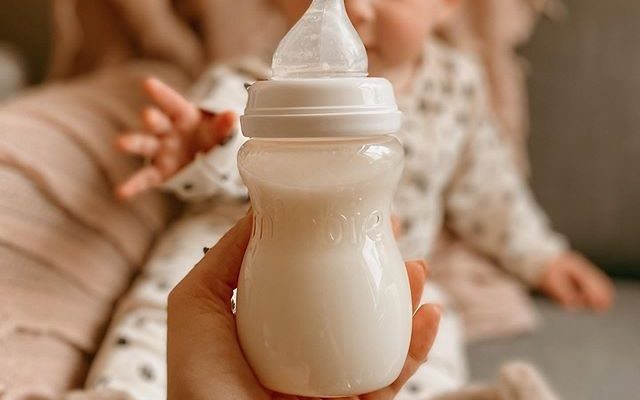In the face of rising living costs, many parents are finding it increasingly difficult to afford baby formula. A recent report from a leading consumer watchdog in the UK has revealed that parents could save as much as £300 a year on baby formula if they were to shop around for the best deals and opt for more cost-effective options. The findings come amid growing concern over the affordability of baby products, particularly infant formula, which is a necessary purchase for families who rely on it for feeding their babies.
Rising Baby Formula Prices
Baby formula has always been a significant expense for parents, especially for those who are unable to breastfeed or choose not to for various reasons. In recent years, however, prices have steadily increased, putting additional pressure on families already grappling with the rising costs of living. Inflation, supply chain disruptions, and other global economic factors have all contributed to the surge in the cost of formula.
For many parents, the situation is made more challenging by the limited options for affordable formula. While breast milk is the natural choice for feeding babies, baby formula is essential for parents who cannot or do not wish to breastfeed. This makes formula pricing a major concern for households, particularly those with lower incomes or single parents.
The recent report highlights that, on average, families are spending significantly more on formula than they did just a few years ago. The watchdog’s analysis suggests that if parents were more vigilant about shopping around for formula, they could save hundreds of pounds each year.
How Can Parents Save on Baby Formula?
The watchdog’s findings provide some much-needed hope for parents struggling to make ends meet. There are a few practical ways that families can reduce the cost of baby formula, even as prices continue to rise:
-
Shop Around for Best Prices: One of the simplest ways to save money on baby formula is to shop around. Prices can vary widely between supermarkets, chemists, and online stores. The watchdog’s report emphasizes that by comparing prices at different retailers, parents can identify where the best deals are. Some stores offer loyalty programs or discounts for bulk purchases, which could help parents reduce the cost further.
-
Consider Generic or Store Brands: Many parents automatically choose well-known branded formulas, but these can often be more expensive than generic or store-branded alternatives. The watchdog suggests that parents should consider trying less expensive options, as many store brands are formulated to meet the same nutritional standards as name-brand formulas. In fact, some store brands have been found to be just as high-quality and safe for babies.
-
Look for Bulk Discounts: Some retailers offer discounts when purchasing formula in larger quantities. While the upfront cost might be higher, buying in bulk can reduce the overall price per unit. Parents can take advantage of these deals by buying enough formula to last for several weeks or even months. However, it’s important to ensure that the formula is stored correctly to maintain its freshness.
-
Online Shopping and Subscription Services: Online shopping can sometimes offer lower prices on baby formula compared to high street stores. Subscription services, where parents can sign up to have formula delivered on a regular basis, can also save money in the long run. Many of these services offer discounted rates for repeat customers or free delivery, further reducing costs.
-
Use Coupons and Discount Codes: Parents can also take advantage of coupons and online discount codes, which can often be found through websites or directly from manufacturers. Signing up for newsletters or joining loyalty programs with formula brands or retailers can sometimes provide access to special promotions and deals. These savings, while small individually, can add up over time.
The Impact of Rising Formula Prices on Families
The rising cost of baby formula is a significant concern for many families, particularly those with limited financial resources. For low-income households, the price of formula can be a major burden, sometimes forcing parents to make difficult choices between buying food, paying for bills, or purchasing the necessary baby products.
In the UK, it has been estimated that a parent could spend anywhere from £500 to £1,000 a year on formula, depending on the brand and the baby’s age. Given the high costs associated with raising a child, this expense can quickly add up, leaving many parents in a difficult financial position.
The report from the consumer watchdog calls on both the government and retailers to take action to help ease the financial pressure on parents. Some experts have suggested that the government should consider introducing subsidies or price caps for essential baby products like formula. Others have urged retailers to be more transparent with pricing and to do more to help parents access affordable formula options.
The Role of Government and Retailers
While parents can certainly take steps to save money on baby formula, there is also a need for broader systemic change. The government has an important role to play in ensuring that families are not financially burdened by the cost of essential baby products. In addition to considering potential subsidies, there could be stronger regulations around the pricing of baby formula, particularly for the most vulnerable families.
Retailers, too, have a responsibility to ensure that they are offering fair prices for essential products. Many retailers already offer discounts for bulk purchases or loyalty members, but there is room for improvement when it comes to providing more affordable options for low-income families. Some retailers have been criticized for taking advantage of the demand for baby formula by inflating prices, especially during times of economic uncertainty. Greater transparency in pricing and more competitive pricing strategies could help alleviate the financial strain on parents.
Conclusion
The recent report from the consumer watchdog highlights an important issue facing many parents today: the rising cost of baby formula. With prices continuing to climb, it is increasingly difficult for families to afford this essential product. However, by shopping around, considering alternative brands, and taking advantage of bulk discounts and online deals, parents could save as much as £300 a year on formula. While these steps can help ease the financial burden, there is also a need for broader action from the government and retailers to ensure that parents are not unfairly priced out of the products they need to care for their babies. In the end, ensuring affordable access to baby formula is vital for the well-being of families and children across the country.



